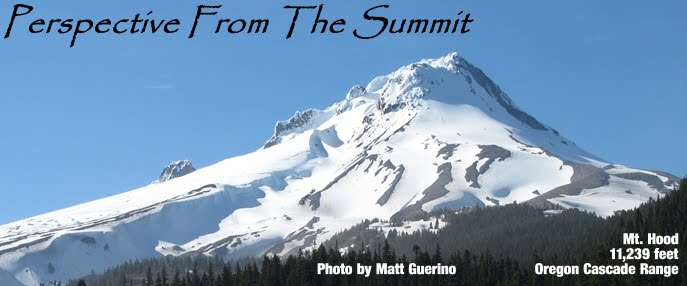 Some of you may know that I studied Physics for 2 years as an undergraduate at Cal, and once even entertained the notion that I would spend my life as a professional astrophysicist. Well I didn't get along too well with higher mathematics, so I eventually realized my calling in life was probably not to be a scientist!
Some of you may know that I studied Physics for 2 years as an undergraduate at Cal, and once even entertained the notion that I would spend my life as a professional astrophysicist. Well I didn't get along too well with higher mathematics, so I eventually realized my calling in life was probably not to be a scientist!
But while I'm hardly a science expert I do still have an interest in the sciences, and this interest came up again recently. I've been writing a series of brief articles which look at life from the perspective of a Biblical worldview. In wrapping that series up (links to the whole series can be found here) I found myself pondering the long-running tension between science and faith.
I've thought a fair bit about this tension over the years, and about the way science is understood by those who have made a career of it, as well as those who haven't. Questions such as:
- Do we have to rule out the idea of God in order to do science effectively?
- For a Christian, do the findings of science represent what the Bible calls "man's wisdom" (which, in the Bible, is bad) vs. "God's wisdom"?
- While it will probably always be a challenge to figure out how faith & science relate to one another, are they actually opposed to one another?
(Image above of the Eagle Nebula courtesy of NASA)


















1 comments:
I never knew you were an aspiring scientist. It explains the logical approach you have in everything you write...so that any reader really has no option but to agree with what you say. Everything is so logically presented!
Maybe I'm just being biased, but what I say comes from a personal observation.
When those biology teachers came up with the words impersonal and unsupervised, they really knew what they were talking about. Now, if those who did not agree with them do not believe in God in the first place, what was the hullabaloo all about?
The way you used the opposite of those words as the title of what you wrote is beautiful. No other words could better describe the way God has scientifically managed and supervised His creation.
I believe that God had to first of all be a scientist to be able to put all those galaxies out there. His exact computation of how far the earth must be from the sun, and all those amazing details...so that we are not burnt to a crisp or frozen to the core...
It has been said, and I'll say it too, it takes more faith to believe in evolution.It is much easier to be a creationist. Really.
I'd be scared to think of all the odds and possibilities of this earth spinning out of control. Much better to believe in a God who understands how science works.
I have a basic understanding of how science operates - thanks to my freshman biology and other natural science courses taken in college. And it's enough for me to be grateful that I don't have to figure it all out for myself. Going into debates with those who refuse to believe in a scientific God, for me, is useless and a waste of time and effort.
I am grateful that the One Who created it all is the One Who sustains it all.
Science is mind boggling...but God is the greatest scientist of them all.
There really need not be a separation between what is natural and what is supernatural.
But then again, not everyone thinks the way we do. In the final analysis, when this natural world comes to an end, where do all those naturalist believers go?
Blessings,
Lidj
Post a Comment